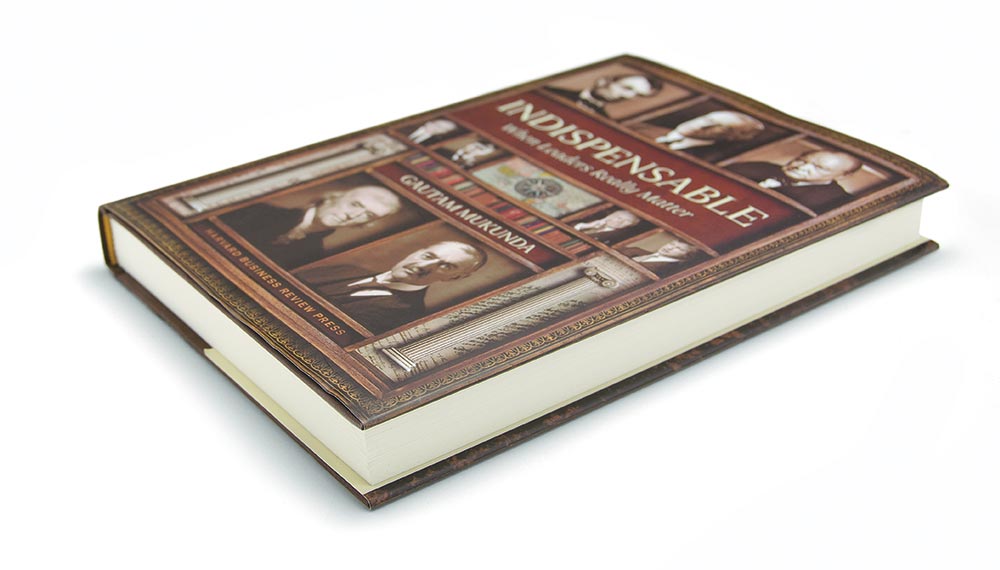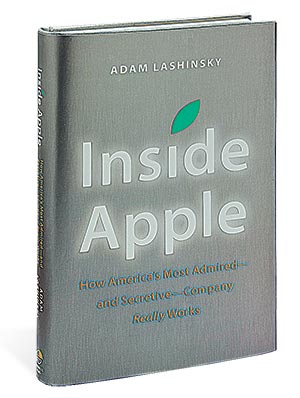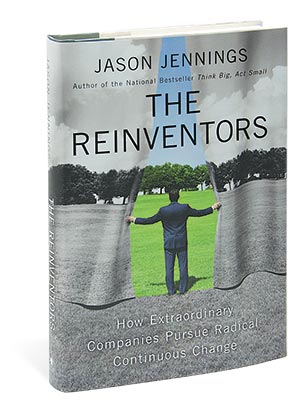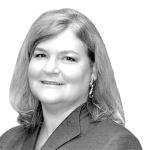
Books: Do Leaders Make a Difference?
Not always. But when they’re at your organization at the right time—with the right skills their impact can be significant.
Association boards spend tremendous time interviewing potential CEOs, but—as Harvard Business School Professor Gautam Mukunda explores in Indispensable: When Leaders Really Matter — does a leader truly make that much of a difference?
All leaders believe they uniquely change an organization. Mukunda isn’t so sure. In this provocative read, he delves into the power-building process of some of the world’s most revered political and business leaders—Abraham Lincoln, Winston Churchill, Jack Welch, and more—to determine when (and what type of) leaders count the most.
In most circumstances, it doesn’t much matter who ends up as leader. If leaders are filtered, one can easily substitute for another.
“In most circumstances, it doesn’t much matter who ends up as leader,” he concludes. “If leaders are filtered, one can easily substitute for another.”
Boards should focus on determining whether they need a leader who is “filtered modal” (repeatedly vetted and, thus, more likely to build a solid but perhaps not spectacular organization) or “unfiltered extreme” (someone “whose odds of gaining power were low but who can have a very high impact”).
Associations seeking a CEO will benefit from Mukunda’s leadership research and examples, as well as his six guidelines for increasing the chances of a successful hire. While the book runs a little long, Mukunda’s conclusions are likely to inspire rich dialogue among board members and CEOs. [Harvard Business Review Press; 320 pages; $28]

Inside Apple: How America’s Most Admired—and Secretive—Company Really Works
Why anyone would want to work in conditions intentionally created to foster a clandestine culture of paranoia, back-biting, and obsessive over-work is a question that comes to mind repeatedly as writer Adam Lashinsky pain-stakingly peels back the skin of one of the world’s most valuable companies—and its controversial CEO—in this new tell-all. Steve Jobs’ accomplishments have certainly changed the world. But his methods—defined by a brazen disregard for best-practice leadership modes—have raised eyebrows.
Lashinsky, a senior editor-at-large at Fortune magazine, explores how Jobs’ actions affected Apple, and introduces us to the figures who will craft the company’s future, post-Jobs. Because of its emphasis on company culture, this is probably more relevant to associations than Walter Isaacson’s Steve Jobs. [Business-Plus; 240 pages; $26.99]

The Reinventors: How Extraordinary Companies Pursue Radical Continuous Change
“The old excuses that a lack of growth is because of the economy, the size or age of a business, or outside the control of the company demonstrates a complete lack of leadership,” writes Jason Jennings in his latest plea for organizational radical change. He pitches a reinvention framework that advocates for “forever frugality,” focus, smart staffing, stringent systemization, and some hefty fearlessness.
Associations may find ideas in the reinvention examples he cites, including CEO Howard Schultz’s return to a floundering Starbucks, where he improved accountability and customer service in part by installing big screens with real-time Twitter and Facebook posts and instituting once-taboo products, such as instant coffee and drive-throughs. The most imporant thing the cases share? Their leaders “summoned their courage and took a leap.” [Portfolio Hardcover; 256 pages; $26.95]






Comments